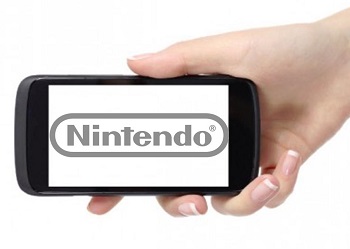Mobile gaming is becoming a major influence on the game industry as a whole
Mobile gaming has become a major source of entertainment for smartphone users. These games are easy to acquire, typically free, and convenient to play, which has allowed them to win the hearts of consumers throughout the world. Nintendo has been taking note of the growing popularity of mobile games and has now decided to develop new games for specific platforms. Nintendo has a long history with mobile platforms, having established a strong and healthy following with its massively popular Game Boy handheld console.
Nintendo is focusing more heavily on the mobile space in order to engage consumers
Nintendo is beginning to push its new Miitomo app, which allows people to connect with one another and create their own digital avatars. Nintendo is also analyzing how it can approach mobile gaming. The company could simply port its more popular titles to smartphones, but it is committed to providing consumers with a “wonderful experience.” This entails developing new games that are part of their popular franchises, making the games available specifically for smartphones and tablets.
Developers and publishers are showing more interest in the mobile gaming space
 Mobile games have become a very powerful force in the overall game industry. Many developers have begun to focus on the mobile space because of its lucrative nature. Consumers have shown that they are willing to spend considerable amounts of money on these games and publishers and developers are interested in taking advantage of this. Some companies that had focused on traditional console games have now begun to devote their attention and resources to the mobile space.
Mobile games have become a very powerful force in the overall game industry. Many developers have begun to focus on the mobile space because of its lucrative nature. Consumers have shown that they are willing to spend considerable amounts of money on these games and publishers and developers are interested in taking advantage of this. Some companies that had focused on traditional console games have now begun to devote their attention and resources to the mobile space.
Nintendo will not abandon its focus on console gaming
Though Nintendo is beginning to focus more on mobile games, the company is not likely to abandon its console interests. Nintendo has found success in the past with its mobile endeavors, but has managed to remain committed to its traditional gaming roots. As consumers become more mobile-centric, however, Nintendo and other developers are beginning to look for ways to better engage new generations of gamers.
These firms are now looking to the Gulf region as one where there could be a wealth of opportunities.
Chinese mobile technology manufacturers are now starting to turn the ripples they’ve been creating in the industry into some rather promising waves, particularly after Lenovo managed to implement a similar strategy in 2013 in order to gain a top spot in the PC sector.
Recent research is now showing that smartphone manufacturers are aiming to replicate that achievement.
The Gartner research firm has said that Lenovo, Huawei, TCL, XIaomi, ZTE and Oppo have all made their way into the top ten ranks. Moreover, some of those mobile technology companies from China have established regional headquarters in Dubai. This only underscores the idea that those businesses have been looking toward the Gulf region as one of their next opportunities for advancement. Among those companies, Huawei has established itself as the third largest smartphone maker, with Lenovo in fourth place and with the fifth place holder being Xiaomi.
It is only recently that Huawei has started to take a more serious stance in mobile technology.
 The majority of the revenues generated by Huawei have been in networking equipment. However, more recently, it has become a much more important player in making smartphones. In fact, it was the only manufacturer to have seen year over year growth of over 70 percent in third quarter shipments. Comparatively, the growth seen by Samsung during that period was 14.61 percent and that of Apple was not that much higher, at 20.62 percent.
The majority of the revenues generated by Huawei have been in networking equipment. However, more recently, it has become a much more important player in making smartphones. In fact, it was the only manufacturer to have seen year over year growth of over 70 percent in third quarter shipments. Comparatively, the growth seen by Samsung during that period was 14.61 percent and that of Apple was not that much higher, at 20.62 percent.
According to the Huawei Middle East vice president, Pan En, “In the area of consumer electronics, we are especially proud of the stellar growth we’ve seen globally and the increased demand for our mid- to high-end devices.” Similarly, the Lenovo Gulf general manager, Mohammad Hilili explained that the Gulf region is and has been quite a strategic location for quite some time now.
Hilili pointed out that “We launched our first tablet and smartphone in the UAE and Saudi Arabia. Then we expanded to other countries. We see a lot of potential in Dubai, especially being a hub.” Equally, he said that the Middle East and Africa (MEA) are two of the primary reasons that are foundations behind some of the strong mobile technology growth being recorded by Lenovo.
 Mobile games have become a very powerful force in the overall game industry. Many developers have begun to focus on the mobile space because of its lucrative nature. Consumers have shown that they are willing to spend considerable amounts of money on these games and publishers and developers are interested in taking advantage of this. Some companies that had focused on traditional console games have now begun to devote their attention and resources to the mobile space.
Mobile games have become a very powerful force in the overall game industry. Many developers have begun to focus on the mobile space because of its lucrative nature. Consumers have shown that they are willing to spend considerable amounts of money on these games and publishers and developers are interested in taking advantage of this. Some companies that had focused on traditional console games have now begun to devote their attention and resources to the mobile space.
 The majority of the revenues generated by Huawei have been in networking equipment. However, more recently, it has become a much more important player in making smartphones. In fact, it was the only manufacturer to have seen year over year growth of over 70 percent in third quarter shipments. Comparatively, the growth seen by Samsung during that period was 14.61 percent and that of Apple was not that much higher, at 20.62 percent.
The majority of the revenues generated by Huawei have been in networking equipment. However, more recently, it has become a much more important player in making smartphones. In fact, it was the only manufacturer to have seen year over year growth of over 70 percent in third quarter shipments. Comparatively, the growth seen by Samsung during that period was 14.61 percent and that of Apple was not that much higher, at 20.62 percent.